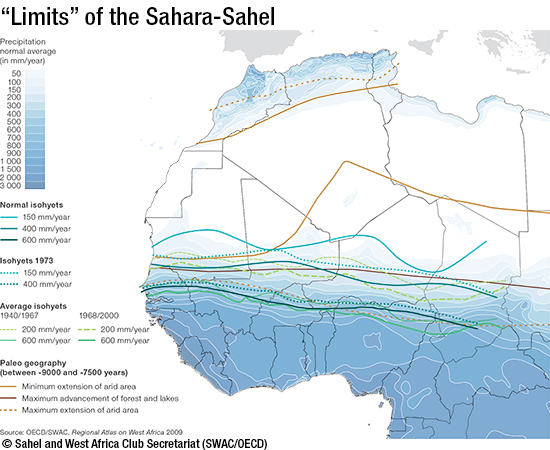NewsBrief, 10-16 February 2015
- ECOWAS, UEMOA, World Bank list priorities for integration
- Central African countries create fund to fight Boko Haram
- Malian prime minister meets with mediators in peace process
- USAID awards innovations in fight against Ebola
- Who's Who? Ramtane Lamamra, Algerian Minister of Foreign Affairs and mediator in the inter-Malian dialogue
- Publication: Sahel Watch
- Maps & Facts: Limits of the Sahara Sahel
ECOWAS, UEMOA, World Bank list priorities for integration
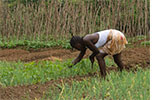 ECOWAS, UEMOA and the World Bank identified agricultural productivity, infrastructure development, security and public health among their key priorities for integration in the sub-region. Delegates to the second tripartite meeting discussed strategies to diversify and transform West African economies during talks from 10-11 February in Accra. The director for regional integration for the World Bank Africa region, Colin Bruce, praised the progress achieved since the first tripartite meeting in July 2013. "We have had some very fruitful discussions and have identified a few transformational priorities, work programmes, timelines and division of responsibilities, which would form the bedrock of our collaboration in the next two years," Bruce said. Participants at the Accra meeting agreed on the need to double or triple productivity in staple foods by increasing the use of fertilisers and certified seeds, assisting farmers in accessing markets and strengthening post-harvest storage and management systems. In light of the Ebola outbreak in the sub-region, the delegates stressed the need to address weaknesses in regional systems for infectious disease prevention and surveillance. The parties agreed to work together to advocate for debt cancellation for the three countries most affected by the outbreak. The World Bank estimates that the Ebola crisis will cost Guinea, Liberia and Sierra Leone USD 1.6 billion, about 12% of their combined GDP, in lost economic growth in 2015. The meeting also underlined the importance of strong regional diplomacy to ensure stability, calling for stronger coalitions across political, security and development of communities. The delegates also called for a multi-year strategic framework to strengthen inter-institutional co-operation and guide future collaboration between the three parties.
ECOWAS, UEMOA and the World Bank identified agricultural productivity, infrastructure development, security and public health among their key priorities for integration in the sub-region. Delegates to the second tripartite meeting discussed strategies to diversify and transform West African economies during talks from 10-11 February in Accra. The director for regional integration for the World Bank Africa region, Colin Bruce, praised the progress achieved since the first tripartite meeting in July 2013. "We have had some very fruitful discussions and have identified a few transformational priorities, work programmes, timelines and division of responsibilities, which would form the bedrock of our collaboration in the next two years," Bruce said. Participants at the Accra meeting agreed on the need to double or triple productivity in staple foods by increasing the use of fertilisers and certified seeds, assisting farmers in accessing markets and strengthening post-harvest storage and management systems. In light of the Ebola outbreak in the sub-region, the delegates stressed the need to address weaknesses in regional systems for infectious disease prevention and surveillance. The parties agreed to work together to advocate for debt cancellation for the three countries most affected by the outbreak. The World Bank estimates that the Ebola crisis will cost Guinea, Liberia and Sierra Leone USD 1.6 billion, about 12% of their combined GDP, in lost economic growth in 2015. The meeting also underlined the importance of strong regional diplomacy to ensure stability, calling for stronger coalitions across political, security and development of communities. The delegates also called for a multi-year strategic framework to strengthen inter-institutional co-operation and guide future collaboration between the three parties.
Article in English: http://www.worldbank.org/2nd-tripartite-meeting
Article in English: http://www.ghananewsagency.org/readiness-85693
Article in French: http://www.banquemondiale.org/2nd-tripartite-meeting
Central African countries create fund to fight Boko Haram
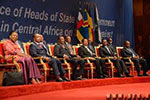 Central African countries have pledged USD 86 million dollars to fight the Islamist militant group Boko Haram. Heads of state from the Economic Community of Central African States (ECCAS) announced the creation of the new fund and finalised plans for a military offensive during their summit on 16 February in Yaoundé. Nigeria-based Boko Haram has been exporting violence to neighbouring countries in recent months. Cameroon's defence minister on 16 February said his forces killed 86 Boko Haram militants and arrested about 1,000 people during clashes near the border with Nigeria. In Niger, police said they detained 160 people with suspected ties to the group in the border area of Diffa, which has come under attack by Boko Haram. Chad, Cameroon, Niger, and Nigeria have agreed to form a military alliance to combat Boko Haram. "This terrorist group has the military and human resources of a conventional army, but uses asymmetric methods, making the fight more complex and costly," ECCAS Secretary-General Hamid Alami said. Last week, Nigeria postponed national elections over Boko Haram violence in the northeast of the country. The presidential election was scheduled to take place on 14 February, while legislative elections were set for 28 February. Voters will now go to the polls on 28 March and 11 April.
Central African countries have pledged USD 86 million dollars to fight the Islamist militant group Boko Haram. Heads of state from the Economic Community of Central African States (ECCAS) announced the creation of the new fund and finalised plans for a military offensive during their summit on 16 February in Yaoundé. Nigeria-based Boko Haram has been exporting violence to neighbouring countries in recent months. Cameroon's defence minister on 16 February said his forces killed 86 Boko Haram militants and arrested about 1,000 people during clashes near the border with Nigeria. In Niger, police said they detained 160 people with suspected ties to the group in the border area of Diffa, which has come under attack by Boko Haram. Chad, Cameroon, Niger, and Nigeria have agreed to form a military alliance to combat Boko Haram. "This terrorist group has the military and human resources of a conventional army, but uses asymmetric methods, making the fight more complex and costly," ECCAS Secretary-General Hamid Alami said. Last week, Nigeria postponed national elections over Boko Haram violence in the northeast of the country. The presidential election was scheduled to take place on 14 February, while legislative elections were set for 28 February. Voters will now go to the polls on 28 March and 11 April.
Article in English: http://allafrica.com/stories/201502170981.html
Article in French: http://fr.africatime.com/millions-pour-lutter-contre
Article in French: http://www.afrik.com/ceeac-contre-boko-haram
Malian Prime Minister meets with mediators in peace process
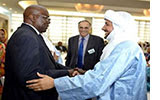 Prime Minister Modibo Keita reiterated the government's commitment to peace talks with militant groups in the north of the country. Keita led a government delegation to Algeria for consultations with the international mediation team in the Malian peace process. The 11 February meeting was held to lay the groundwork for the fifth round in the inter-Malian dialogue, which began on 16 February in Algiers. "Without peace in northern Mali, no development action can be achieved," said Keita, who served as the President's high representative for inter-Malian dialogue before being named prime minister. Representatives of ECOWAS, the UN mission in Mali (MINUSMA), the AU and the Organisation of Islamic Co-operation (OIC) also attended the meeting. Algerian Foreign Minister Ramtane Lamamra said the participation of such a high-level delegation at the meeting was "crucial" to the success of the negotiations, which aim to end decades of unrest in northern Mali. Touareg and other armed groups have staged a series of rebellions since the 1960s and in 2012 declared an independent state of Azawad in the desert north. The Bamako government rejects independence for the area but has pledged to consider devolving some authority. In recent months, tensions have ratcheted up over renewed clashes between the militants and pro-government militia groups. The head of MINUSMA, Hamdi Mongi, welcomed Keita's visit to in Algiers as a sign of the "Malian government's determination to support the Algiers talks, which are a unique and historic opportunity for all the people of Mali to achieve a lasting peace."
Prime Minister Modibo Keita reiterated the government's commitment to peace talks with militant groups in the north of the country. Keita led a government delegation to Algeria for consultations with the international mediation team in the Malian peace process. The 11 February meeting was held to lay the groundwork for the fifth round in the inter-Malian dialogue, which began on 16 February in Algiers. "Without peace in northern Mali, no development action can be achieved," said Keita, who served as the President's high representative for inter-Malian dialogue before being named prime minister. Representatives of ECOWAS, the UN mission in Mali (MINUSMA), the AU and the Organisation of Islamic Co-operation (OIC) also attended the meeting. Algerian Foreign Minister Ramtane Lamamra said the participation of such a high-level delegation at the meeting was "crucial" to the success of the negotiations, which aim to end decades of unrest in northern Mali. Touareg and other armed groups have staged a series of rebellions since the 1960s and in 2012 declared an independent state of Azawad in the desert north. The Bamako government rejects independence for the area but has pledged to consider devolving some authority. In recent months, tensions have ratcheted up over renewed clashes between the militants and pro-government militia groups. The head of MINUSMA, Hamdi Mongi, welcomed Keita's visit to in Algiers as a sign of the "Malian government's determination to support the Algiers talks, which are a unique and historic opportunity for all the people of Mali to achieve a lasting peace."
Article in English: http://allafrica.com/stories/201502121711.html
Article in French: http://www.aps.dz/par-les-parties-prenantes
USAID awards innovations in fight against Ebola
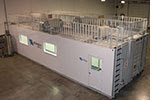 From health information technology to mobile treatment centres, USAID is throwing its support behind innovations to strengthen the response to the Ebola outbreak and preparedness for future epidemics. The agency announced 12 new innovations that will receive awards through the "Fighting Ebola: a grand challenge for development" initiative. Launched in October 2014, the Challenge aims to identify, incubate, test and accelerate the implementation of inventive strategies to combat the Ebola outbreak and strengthen health systems and community resilience. The first round of innovations, announced in December, focused on solutions for health worker safety. The new innovations include wearable patient sensors, Bluetooth-enabled patches that allow for remote monitoring of Ebola patients and Emergency Smart Pods that repurpose shipping containers into rapidly-deployable treatment units. "We are embracing a new model of development - one that harnesses the power of science and technology to bend the curve of development," said USAID Administrator Rajiv Shah. "Through the Fighting Ebola Grand Challenge, we will continue to source, test, and scale ground-breaking innovations that will not only save lives in the months to come, but lay the foundation for more resilient and vibrant communities across West Africa." After extensive testing, the selected innovations will receive financial and other support in preparation for production and deployment in the field. In a meeting on 15 February, West African regional leaders committed to end the Ebola epidemic within the next 60 days and address post Ebola socio-economic recovery and development needs.
From health information technology to mobile treatment centres, USAID is throwing its support behind innovations to strengthen the response to the Ebola outbreak and preparedness for future epidemics. The agency announced 12 new innovations that will receive awards through the "Fighting Ebola: a grand challenge for development" initiative. Launched in October 2014, the Challenge aims to identify, incubate, test and accelerate the implementation of inventive strategies to combat the Ebola outbreak and strengthen health systems and community resilience. The first round of innovations, announced in December, focused on solutions for health worker safety. The new innovations include wearable patient sensors, Bluetooth-enabled patches that allow for remote monitoring of Ebola patients and Emergency Smart Pods that repurpose shipping containers into rapidly-deployable treatment units. "We are embracing a new model of development - one that harnesses the power of science and technology to bend the curve of development," said USAID Administrator Rajiv Shah. "Through the Fighting Ebola Grand Challenge, we will continue to source, test, and scale ground-breaking innovations that will not only save lives in the months to come, but lay the foundation for more resilient and vibrant communities across West Africa." After extensive testing, the selected innovations will receive financial and other support in preparation for production and deployment in the field. In a meeting on 15 February, West African regional leaders committed to end the Ebola epidemic within the next 60 days and address post Ebola socio-economic recovery and development needs.
Article in English: http://www.usaid.gov/grand-challenge-ebola
Challenge web site in English: http://www.ebolagrandchallenge.net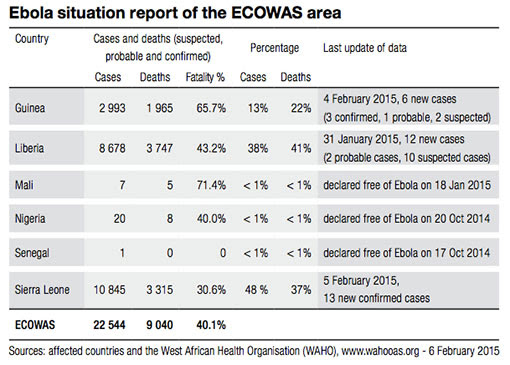
Who's Who? Ramtane Lamamra, Algerian Minister of Foreign Affairs and mediator in the inter-Malian dialogue
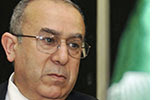 Algeria's top diplomat, Ramtane Lamamra, is at the centre of international efforts to find a lasting peace in Mali. His role as mediator between the Malian government and militant groups in the north will require all of the diplomatic dexterity gathered during a lengthy career in international affairs. A native of Amizour, in the Béjaïa region, Lamamra was educated at the Ecole Nationale d'Administration (ENA) in Algiers. He served as Algeria's ambassador to Ethiopia, Djibouti and the Organisation of African Unity and was a voice for Algerian and African concerns on the international stage as ambassador the United Nations from 1993 to 1996. He was Algeria's man in Washington from 1996 to 1999. Throughout his international career, Lamamra maintained strong ties to the continent and was involved in efforts to help resolve numerous conflicts. He was the AU special envoy to Liberia from 2003 until 2007. The following year he was elected AU Commissioner for Peace and Security, a position he resigned when he was appointed Minister of Foreign Affairs in September 2013. As foreign minister, Lamamra has shown commitment to strengthening co-operation across the Sahara-Sahel areas and has been a leading force impelling the inter-Malian dialogue. "The situation on the ground is difficult," Lamamra said during talks with Malian government representatives on 11 February. "There is no future in confrontation, but rather in reconciliation and joining efforts to address the development challenges in this difficult region and also to fight against terrorism, organised and cross-border crime." Recalling Mali's solidarity during the Algerian revolution, Lamamra said his country "will spare no effort to export peace and stability, and to share with their brothers and neighbours its own experience."
Algeria's top diplomat, Ramtane Lamamra, is at the centre of international efforts to find a lasting peace in Mali. His role as mediator between the Malian government and militant groups in the north will require all of the diplomatic dexterity gathered during a lengthy career in international affairs. A native of Amizour, in the Béjaïa region, Lamamra was educated at the Ecole Nationale d'Administration (ENA) in Algiers. He served as Algeria's ambassador to Ethiopia, Djibouti and the Organisation of African Unity and was a voice for Algerian and African concerns on the international stage as ambassador the United Nations from 1993 to 1996. He was Algeria's man in Washington from 1996 to 1999. Throughout his international career, Lamamra maintained strong ties to the continent and was involved in efforts to help resolve numerous conflicts. He was the AU special envoy to Liberia from 2003 until 2007. The following year he was elected AU Commissioner for Peace and Security, a position he resigned when he was appointed Minister of Foreign Affairs in September 2013. As foreign minister, Lamamra has shown commitment to strengthening co-operation across the Sahara-Sahel areas and has been a leading force impelling the inter-Malian dialogue. "The situation on the ground is difficult," Lamamra said during talks with Malian government representatives on 11 February. "There is no future in confrontation, but rather in reconciliation and joining efforts to address the development challenges in this difficult region and also to fight against terrorism, organised and cross-border crime." Recalling Mali's solidarity during the Algerian revolution, Lamamra said his country "will spare no effort to export peace and stability, and to share with their brothers and neighbours its own experience."
Article in English: http://www.aps.dz/meetingcrucial,-says-lamamra
Biography in French: http://www.algerie-focus.com/ramtane-lamamra/
Publication: Sahel Watch
![]() Curated by The Broker, Sahel Watch analyses blind spots in policy and seek solutions for policymakers and practitioners. Recent articles have focused on the conflict in Mali employing "a living analysis", which presents up-to-the-minute information from experts and practitioners on the ground "to identify, integrate and analyse the different perspectives to advance insights into the constantly changing dynamics." The paper argues that while the conflict in Mali has its roots in history, it can also be seen as a product of current economic, ecological, political, security and geopolitical developments in the region. The Sahel Watch will gradually be expanded to the larger Sahel region. The analysis is updated with new experts' contributions, multimedia content, policy reports, academic studies and local information.
Curated by The Broker, Sahel Watch analyses blind spots in policy and seek solutions for policymakers and practitioners. Recent articles have focused on the conflict in Mali employing "a living analysis", which presents up-to-the-minute information from experts and practitioners on the ground "to identify, integrate and analyse the different perspectives to advance insights into the constantly changing dynamics." The paper argues that while the conflict in Mali has its roots in history, it can also be seen as a product of current economic, ecological, political, security and geopolitical developments in the region. The Sahel Watch will gradually be expanded to the larger Sahel region. The analysis is updated with new experts' contributions, multimedia content, policy reports, academic studies and local information.
Sahel Watch in English: http://www.thebrokeronline.eu/the-conflict-in-Mali
Maps & Facts: Limits of the Sahara-Sahel
The mapping of the Sahara and the Sahel is generally based on rainfall. But the results can vary significantly depending on the timescale or number of years used to calculate an average. How then to choose an average? Perhaps it is best to avoid drawing these so-called “natural” boundaries, since they lead to the impression that each average corresponds to a way of life (farmers/pastoralists, nomadic/sedentary). Policies arising from such notions are out of step with the realities of Saharan-Sahelian societies where isohyets have little meaning whether cultural, social, economic or political.
> download the map

